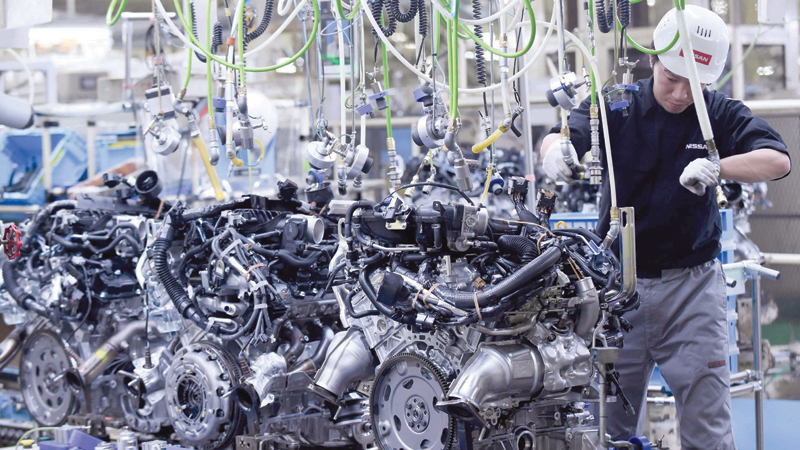

TOKYO: Japan may already be in recession, a government assessment of its own economic indicators showed on Monday, as the US-China trade war and weak external demand hurt activity and pose fresh challenges for Prime Minister Shinzo Abe’s policies.
The country’s indexes on leading and coincident economic indicators both declined in March from the previous month, the Cabinet Office said.
In its accompanying assessment on the coincident index, which combines readings such as factory output, employment and retail sales, the government described the state of the economy as “worsening”. That expression suggests a high possibility the economy has already fallen into recession, the government stated in its guidelines on the index assessment.
It also compares with its previous assessment for February when it described the economy at “a turning point towards a downgrade”.
The last time the government used the expression “worsening” in its assessment was between October 2012 and January 2013. It later judged the economy was in recession, often defined as two consecutive quarters of contraction in overseas.
Japan releases its first quarter gross domestic product data on May 20 and is expected to post a mild contraction for the period.
“The economy in the first quarter performed poorly. Factory output was clearly declined,” said Yoshiki Shinke, chief economist at Dai-Ichi Life Research Institute.
“External factors such as China’s economy and the outlook for the US-China trade conflict will continue to be a close focus.” The index of coincident economic indicators fell a preliminary 0.9 of a point in March from the previous month.
The index of leading economic indicators, compiled using data such as job offers and consumer sentiment and seen as a forward-looking gauge of the economy, slipped 0.8 of a point.
Worries about the economy have grown as Japan’s exports and factory output were hit by China’s economic slowdown and the escalating US-China trade friction, which has disrupted global supply chains.
Prime Abe’s reflationary policy mix dubbed “Abenomics”, which combined bold monetary easing, flexible fiscal policy and structural reform, may be sputtering.
Risks from the global trade conflicts and weakening foreign demand raised concerns a postwar record growth cycle driven by Abenomics may be over. If the economy in April-June picks up, Japan may avert a recession, Shinke added.
Also clouding the outlook are plans to raise a sales tax to 10 per cent from the current 8 per cent in October unless a big shock on the scale of Lehman Brothers’ collapse in 2008 hits the economy.
There is speculation Abe may postpone the sales tax hike as risks to demand grow, having already twice delayed it.
There are concerns the sales tax increase will damage private consumption as it did so when Japan raised the tax to 8 per cent from 5 per cent in 2014. — Reuters
Oman Observer is now on the WhatsApp channel. Click here



